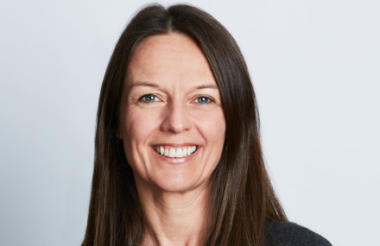Help for Heroes has appointed Melanie Waters as its new chief executive, following the resignation of its founder in April.
Waters is the current chief executive of the Poppy Factory – a charity that works for the recovery and employment of ex-service people. She is also non-executive director and commissioner of the £35m Big Lottery grant-giving body Forces in Mind Trust and vice chair of Cobseo. She will take up her new role in November.
In a statement yesterday, Waters said Help for Heroes is a charity that has “brought new energy to the armed forces charity sector”.
“The organisation is known by both its beneficiaries and supporters for its uniquely positive culture and the open, easy-to-access support that it offers,” she said.
Her appointment follows the announcement by the charity’s founder, Bryn Parry, that he will step down from his full-time position at the end of the year, along with his wife and co-founder Emma Parry.
Yesterday Bryn Parry said he has worked alongside Waters in her role at the Poppy Factory over several years.
“She brings extensive knowledge and skills from both the commercial and third sector and is a much respected leader of a partner charity,” he said.
Waters has been chief executive of the Poppy Factory for six years, leading the charity through a period of growth - supporting some 600 individuals into work with a further 500 people registering for services this year.
Commenting on his departure, Bryn Parry said: “The last nine years have been demanding for Emma and me but it is an extraordinary privilege to have been given the opportunity to make a difference to so many very special people. Our role will now change but our commitment to ensuring ‘the blokes’ get the best support, will continue for life. We wish Mel all the best and look forward to working with her.”
In a letter to trustees in April, Parry said it was “time to take this wonderful organisation into its next phase”, and the charity’s leadership requires a “different set of skills” to his to take it forward.
Parry will continue to offer services and support to the charity in his capacity as founder, for “as long as needed”, he said.
The charity’s most recent annual report revealed plans to change the way it fundraises, following a decision to close its shops and digital fundraising platform.
According to the annual report for the year ending September 2015, the charity has experienced a surge in beneficiaries but decline in “hot” fundraised income – income generated from publicity around conflict.
As a result, the charity will focus more effort on regular givers, grant givers and major donors, the report said.









